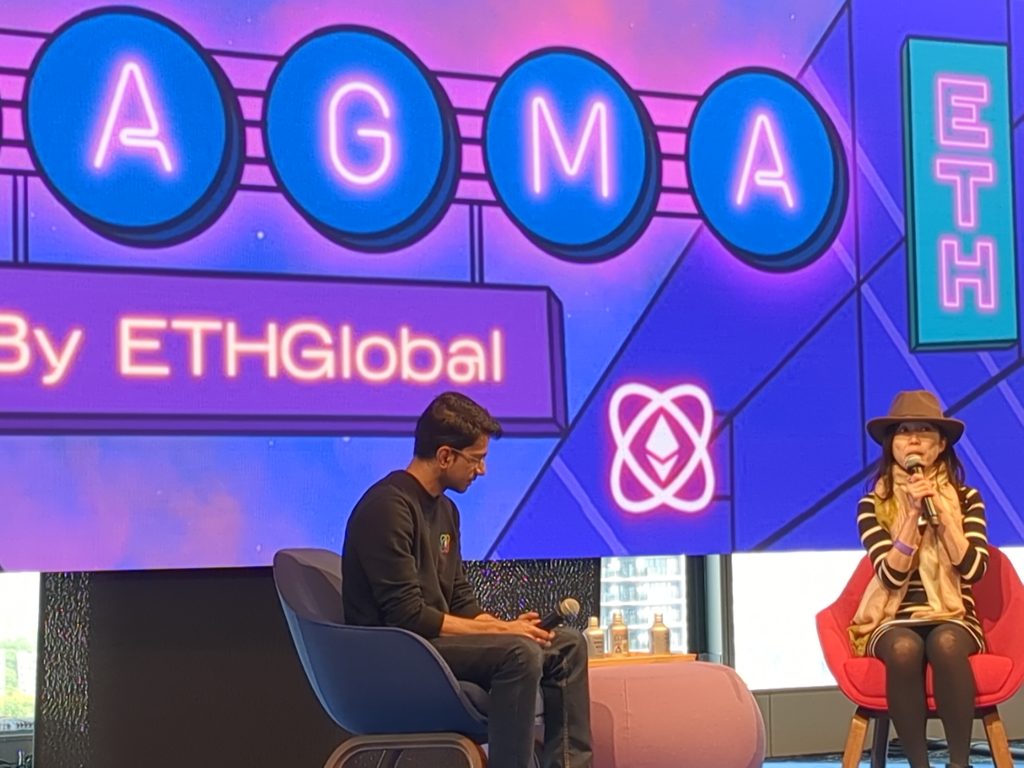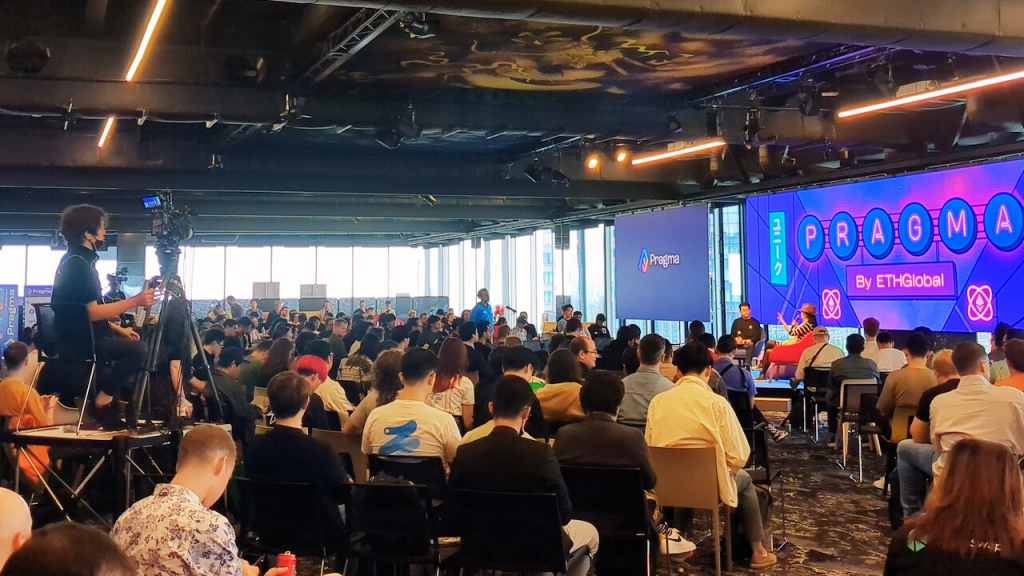Tags in this story
Aya Miyaguchi, Balaji Srinivasan, Coding, Decentralization, Digital Garage, Ethereum Foundation, ETHGlobal, Hackathon, Japan crypto, Juan Benet, Kartik Talwar, Programming, Shibuya, Stani Kulechov, Tokyo
all about cryptop referances

As previously announced by ETHGlobal, the first-ever Pragma Summit kicked off the broader ETHGlobal Tokyo hackathon on Thursday as a “hub for high-quality conversations and as a discussion forum for developers and leaders from the Ethereum ecosystem and beyond.” The event, chaired by Kartik Talwar of ETHGlobal, featured on-stage interviews with Aya Miyaguchi of the Ethereum Foundation, Juan Benet of Protocol Labs, The Network State author and bitcoin advocate Balaji Srinivasan, and Stani Kulechov of Aave Companies. Product announcements were also made by several featured speakers.
On April 13th, Ethereum supporters from around the world came to Tokyo’s Shibuya branch, in the Digital Garage, to participate in on-stage interviews, product announcements and networking. The Pragma event for applications is said to be the first ever in-person version of such summits for ETHGlobal, and kicked off the wider ETHGlobal Tokyo hackathon which runs until Sunday 16 April.

Kartik Talwar, co-founder of ETHGlobal, began the series of interviews by inviting Aya Miyaguchi, CEO of the Ethereum Foundation, to the stage.
Commenting on the general culture in Japan, Miyaguchi said that people are very humble and “there are a lot of talented developers, but it’s not embraced enough. Like, recognized enough. It’s like, okay, in a company … management makes the decisions and they tells the developers what to build.” She emphasized:
But the Ethereum way is that you have to include these developers in idea generation, brainstorming.
Miyaguchi went on to note, “One thing Japan is very good at…they are good at teamwork.” The CEO says this is a real strength and that Japanese people are eager to learn new things like programming languages, but events like the hackathon and the Ethereum community can “teach or inspire” a new way of opening outside the traditional cultural constraints.

Juan Benet of Protocol Labs talked about the creation of IPFS, the preservation of archives on blockchains, and the future possibilities of various blockchain transformations, saying:
My prediction is that most of these chains are going to recombine in super interesting ways… some L1s [layer one] will turn into L2s, some L2s will turn into L1s, and it won’t matter that much in the long run.
He noted that blockchains should be able to scale much more than people think possible, noting that “laws of scaling work” and citing similar structures that already exist.

“Today we reach tens of thousands or hundreds of thousands of transactions per second on each chain,” Benet noted. “We have to reach for billions or trillions of transactions per second. That’s the real benchmark. The moment where you can have something like all of Twitter built on the chain … that’s the kind of scalability we need.”

Stani Kulechov, founder and CEO of Aave, discussed, among other things, ways to make the products more customizable by users:
If you think about most of the products in the world, you really can’t go and make a pull request. You can’t go and send a pull request to your iPhone or Android phone and expect something good to happen if your idea is good and you solve the problem. But what if in the future you could actually build this way? Protocols, products and algorithms. And it is possible when you build things in a more open way.

Rounding out today’s talks was tech entrepreneur, author and angel investor Balaji Srinivasan, who although unable to attend in person, delivered a politically and philosophically charged external presentation on the fall of Western fiat currencies. He also held an extended Q&A session.
Srinivasan told attendees that eastern fiat currencies such as the Chinese renminbi and the Indian rupee can outlast western currencies such as the US dollar.

He also explained why he made his now-famous million-dollar bitcoin gamble, citing the current global financial chaos, clarifying:
I will also provide an update on the effort soon… I think it will be satisfactory for everyone. The reason I did it was to draw attention to this crisis.

Between the interviews, Pragma participants heard lectures and saw presentations about several product announcements. The presentations included Masa ‘Senshi’ Kikuchi from Secured Finance, Lukas Schor from Safe, Harsh Rajat from Push Protocol and Jason Goldberg from Airstack.
The wider ETHGlobal Tokyo Hackathon will run through Sunday, April 16. Follow Bitcoin.com News to receive updates on the event, including thoughts from participating builders and engineers testing new ideas and competing for $375,000 in prizes.
What are your thoughts on the first Ethereum Pragma conference? Let us know in the comments section below.
Image credit: Shutterstock, Pixabay, Wiki Commons, ETHGlobal, Graham Smith
Disclaimer: This article is for informational purposes only. It is not a direct offer or solicitation of an offer to buy or sell, or an endorsement or recommendation of products, services or companies. Bitcoin.com does not provide investment, tax, legal or accounting advice. Neither the company nor the author is directly or indirectly responsible for damages or losses caused or alleged to be caused by or in connection with the use of or reliance on content, goods or services mentioned in this article.